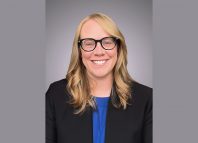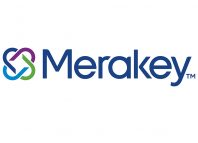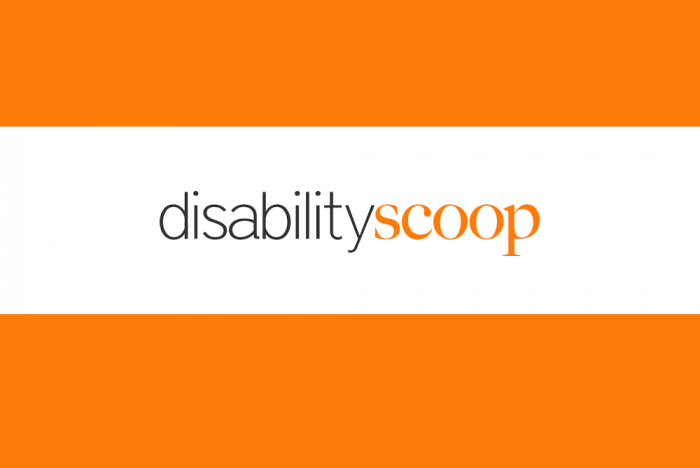Documents From February 14 LTSS Subcommittee Meeting Now Available
The monthly Long-Term Services and Supports (LTSS) Subcommittee convened on February 14, 2023. The meeting handouts included the agenda and a PowerPoint presentation from the Office of Long-Term Living (OLTL). Some of the topics in their presentation included:
- COVID-19 Vaccination Rates From the Community HealthChoices Managed Care Organizations (CHC-MCOs);
- CHC Request for Information (RFI) Update;
- Electronic Visit Verification (EVV);
- Independent Enrollment Broker (IEB) Enrollment Data;
- LIFE Enrollments;
- Medical Assistance (MA) Unwinding;
- Appendix K Waiver; and
- Home and Community-Based Services (HCBS) Settings Rule.
The next LTSS Subcommittee meeting is scheduled for April 11, 2023.
Sandata Webinar on Provider Integrity in Medicaid Home Personal Care Services — March 7
Tuesday, March 7, 2023
1:00 pm – 1:30 pm ET
Join the Provider Integrity in Medicaid Home Personal Care Services webinar with Kirit Pandit, VP, Data and Analytics. Preventing fraud, waste, and abuse (FWA) in the Medicaid market is an on-going effort, with many providers, payers, and vendors involved in the effort to improve the health care system.
During this session, you can expect to:
- Learn about the analytics dashboards developed to mine data and identify these cases;
- See our vision for application of analytics for program integrity in home personal care services; and
- Understand how the development of the dashboards can lead to further insights and actions to support the efforts of state and compliance programs.
Reserve your spot today, and stay tuned for information about more upcoming Empower webinars!
DHS Provides Update on the End of the PA PHE, Medicaid, and CHIP
Pennsylvania is preparing for a major change in renewal processes for Medicaid and Children’s Health Insurance Program (CHIP) recipients.
Starting April 1, 2023, Pennsylvania is required by federal law to review Medicaid and CHIP recipients’ eligibility every year, which means that recipients must submit a renewal. While the Department of Human Services (DHS) still sent renewals during the height of the COVID-19 pandemic, most people were not disenrolled from Medicaid or CHIP because of a change in eligibility.
DHS encourages everyone to share the following information with Medicaid and CHIP recipients to help them stay informed about renewals.
What Should I Do Right Now?
The best thing that Medicaid and CHIP recipients can do right now to prepare for their renewal is to make sure that their contact information is up-to-date with DHS. By making sure that their information is current, recipients can receive timely updates about their renewal. They also can opt-in to receiving text and email alerts about their benefits.
- Visit COMPASS and log into their My COMPASS Account.
- Use the free myCOMPASS PA mobile app.
- Call 877-395-8930 or 215-560-7226 (Philadelphia), Monday – Friday from 8:00 am – 4:30 pm.
What Else Do I Need to Know?
Completing Medicaid and CHIP Renewals
Renewals should be completed when they are received, even if recipients receive them before April 1, 2023. Recipients will receive a renewal packet in the mail when it is time to renew their coverage. Information about their renewal will start to arrive 90 days before it is due. It is very important that renewal forms are completed and returned even if nothing has changed. Completing a renewal allows DHS to determine eligibility for MA or CHIP coverage. Coverage will continue for recipients who are still eligible.
There are a few ways for recipients to complete a renewal:
- Complete the forms DHS sends and mail them back in the envelope included in the packet.
- Drop completed forms off at the local county assistance office (CAO).
- Complete the renewal online.
- Complete the renewal over the phone by calling 866-550-4355.
What is Continuous Coverage?
Under the continuous coverage requirement, individuals covered by Medicaid and/or CHIP have been able to keep their health coverage even if they would have otherwise become ineligible for the program based on other factors.
Evaluating Eligibility
Once the continuous Medicaid and CHIP coverage requirement ends, recipients will have to complete a renewal to maintain their coverage as long as they are eligible.
Are You Ineligible for Coverage?
DHS will provide instructions on how to re-enroll or share options for coverage if individuals are no longer eligible. Options for free or low-cost health coverage are available online.
PAS/SCE Strategic Member Meeting — March 1, 2023
Biden Renews Calls To Invest In Services For People With Disabilities
Webinar Series: Entrepreneurship, Disability, & Community Development Financial Institutions
Message from the National Disability Institute:
Accessing capital can be essential for business growth, yet many founders with disabilities report experiencing significant barriers. Join our five-part webinar series to hear from community development financial institutions (CDFI) who have found ways to increase inclusion and from disability-owned businesses on how they obtained the capital they needed.
Who should attend:
- Entrepreneurs with disabilities looking for information on accessing capital and how CDFI lending differs from that of traditional banks;
- CDFIs with a commitment to diversity, equity, and inclusion who wish to ensure they are meeting the needs of business owners with disabilities; and
- Entrepreneurial and other support organizations looking for information to assist their customers to access capital and other financial health supports.
Register for the Introduction to CDFI’s session on February 28, 2023, from 2:00 pm – 3:30 pm EST.
Register for sessions 2–5, scheduled every other Tuesday from March 7, 2023, through April 18, 2023, from 2:00 pm – 3:30 pm EST. Each session will include CDFI and the experiences of business owners with disabilities.
ASL interpretation and captioning will be provided during the session. If you have any accessibility requests or questions, please email Alexis Jones. For more information, visit NDI’s website.
ARPA/Act 54 Payments Delayed for Personal Care Homes & Assisted Living Residences
The Department of Human Services (DHS) issued a communication regarding a delay in the distribution of American Rescue Plan Act (ARPA) funding allocated to Personal Care Homes (PCH) and Assisted Living Residences (ALR) by Act 54 of 2022.
As of 2/6/2023, approximately 50 percent of the Act 54 payments for PCH and ALR had been processed by OLTL, and approximately 25 percent of the total facilities for which form submissions have been received have been fully processed and paid by the Treasury. DHS anticipates that it may take until the end of March 2023 for the remaining 50 percent of payments to be processed and finalized. Providers are asked to please be patient while the remaining payments are processed. If your facility is anticipating serious negative consequences from the delay of your payment, please email.
Visit here for information on the exact breakdown of the $26,767,000 of available Act 54 funding for PCH and ALR.
Please remember that Act 54 of 2022 requires the ARPA funding to be obligated by December 31, 2024, and spent by December 31, 2026, or returned to the Commonwealth. Additionally, these funds must be used for COVID-19 related expenses. Providers must keep documentation to prove that these funds were used for their response to the COVID-19 pandemic in case of an audit. Any person or entity accepting an ARPA payment agrees to provide documentation to the Department of Human Services (DHS) upon request for purposes of determining compliance with Act 54 requirements. Instructions on expenditure reporting will be provided at a later date.
DHS recommends that providers consult their accountants or attorneys for further clarification on acceptable uses of ARPA funding. DHS encourages providers to review guidance for eligible expenditures on the US Department of the Treasury website in their Compliance and Reporting Guidance.
If your facility has not submitted an Act 54 Facility Acceptance Form, you may still do so. Do not submit this form if your facility has previously applied for this funding.
Other questions about this information may be directed via email.
CMS Publishes Resources to Assist With End of the Public Health Emergency
The Centers for Medicare and Medicaid Services (CMS) has published resources to assist healthcare workers prepare for the end of the public health emergency (PHE) on May 11, 2023. Included in these resources are a number of provider-specific fact sheets for information about COVID-19 PHE waivers and flexibilities; two specific documents included are the Long-Term Care Facilities and Inpatient Rehabilitation Facilities fact sheets.
OLTL Releases Act 150 Program Sliding Fee Scale Info & Reports for Calendar Year 2023
The Office of Long-Term Living (OLTL) has released information about the Act 150 Program sliding fee scale for calendar year (CY) 2023. This information includes:
- 2023 Act 150 Sliding Fee Scale;
- Monthly Act 150 Participant Fee Report (Age 60 and Over);
- Monthly Act 150 Participant Fee Report (Under Age 60);
- Monthly Act 150 Participant Fee Reports (Excel Version);
Please note: the bulletin’s effective date is January 1, 2023. Collection of Act 150 participant fees based on the 2023 Fee Scale must begin on the bulletin’s effective date.
The above documents are available in alternate format upon request by calling (717) 857-3280. For future reference, a copy of this bulletin will be posted to the DHS Bulletin Results page for OLTL.

















